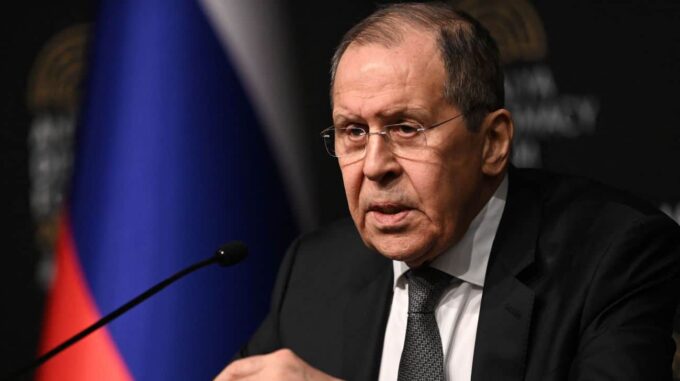Russian Foreign Minister Sergey Lavrov is internally outraged by the European Union countries’ decision to ban flights for the leaders of Serbia and Slovakia, who planned to attend the Victory Day celebrations in Moscow

This move has caused significant displeasure in Moscow, as Lavrov hints at double standards and emphasizes the ambiguity of such policies by the Baltic states. According to the Russian agency TASS, citing a source in "European Pravda," the Russian minister expressed his position regarding this decision, stating that he "adheres to the rules of television and censorship" and will not openly comment on his personal views on the matter. At the same time, he emphasized: "Of course, this is a disgrace." Despite this, Lavrov avoided direct condemnation, possibly to prevent provoking even greater tensions. This situation is also escalating the diplomatic conflict. Previously, Russia’s Foreign Ministry spokeswoman Maria Zakharova described the ban as "uncivilized methods" and accused the Baltic countries of acting as a "outpost of Russophobia." Her statements continue Moscow’s information campaign regarding international isolation and the blocking of Russian political and cultural initiatives. A notable aspect of this event is that Slovak Prime Minister Robert Fico and Serbian President Aleksandar Vučić will be the only European leaders invited to participate in the parade commemorating the 78th anniversary of Victory in Moscow. Vučić has already arrived in the Russian capital, albeit with a delay—due to air raid alerts in Russia, he was forced to make a stop in Baku. This underlines the tension in relations between the EU and these countries, which remain among the few openly maintaining traditional ties with Moscow. Regarding Slovak Prime Minister Robert Fico, he reported attempts to derail his planned visit after Estonia confirmed the ban on his plane flying over its airspace. Fico himself confirmed that his flights caused several difficulties but noted that his participation in the Red Square parade remains uncertain. The official program of his visit to Moscow does not mention his presence at the ceremony, which may indicate a probable cancellation or postponement of the planned events. This situation further underscores the tension in international relations concerning flights and diplomatic manifestations in memory of military victories, raising questions about Russia’s future interactions with Europe and the Baltic countries in the fields of foreign policy and security.

